From Neuralink's first human implant to chilly temps in Hong Kong – Here are today's Headlines
Last year, Neuralink began looking for patients for trials, specifically people with quadriplegia from spinal cord injuries or amyotrophic lateral sclerosis (ALS).
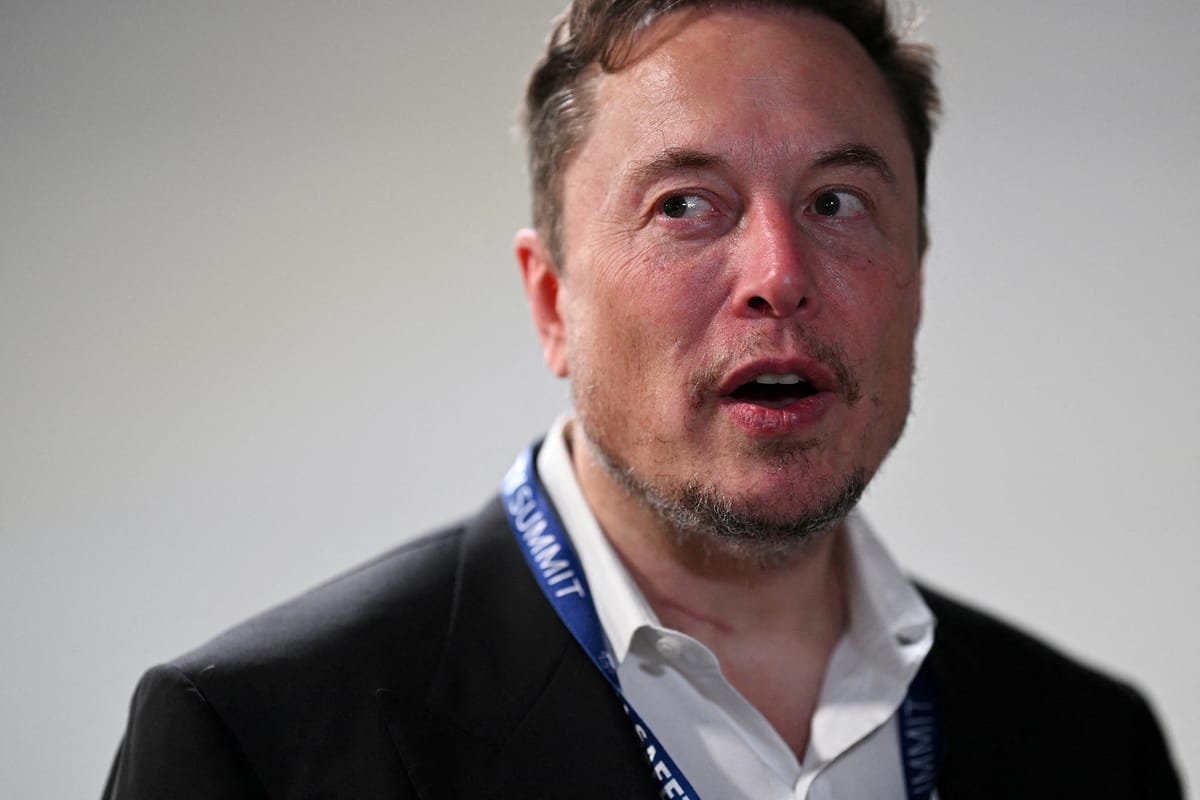
A few minutes every morning is all you need.
Stay up to date on the world's Headlines and Human Stories. It's fun, it's factual, it's fluff-free.
To start off, we're looking into:
Neuralink's first human implant
The backstory: Neuralink, a company under the umbrella of Tesla CEO Elon Musk's ventures, was founded in 2016. Musk, known for his roles at X and SpaceX, launched Neuralink with the ambitious goal of bridging the gap between human brains and computers using implanted chips. One of the main goals is to help people with traumatic injuries use computers with their thoughts.
In 2019, Musk talked about putting his brain device into humans. But doubts were swirling about Neuralink's progress as other companies like Synchron were moving faster to implant devices in human brains. Synchron had the first brain-computer interface implant on a patient in the US in 2022.
More recently: Last year, Neuralink began looking for patients for trials, specifically people with quadriplegia from spinal cord injuries or amyotrophic lateral sclerosis (ALS). Thousands reportedly showed interest, and the company plans to do surgery on 11 patients this year and to involve over 22,000 participants by 2030. In May, Neuralink achieved a big milestone with US regulatory approval for its initial human trials.
The development: Musk shared a big update on Neuralink this week, saying the company successfully put its brain device into a person for the first time. Click the link here for more.
China curbs short selling
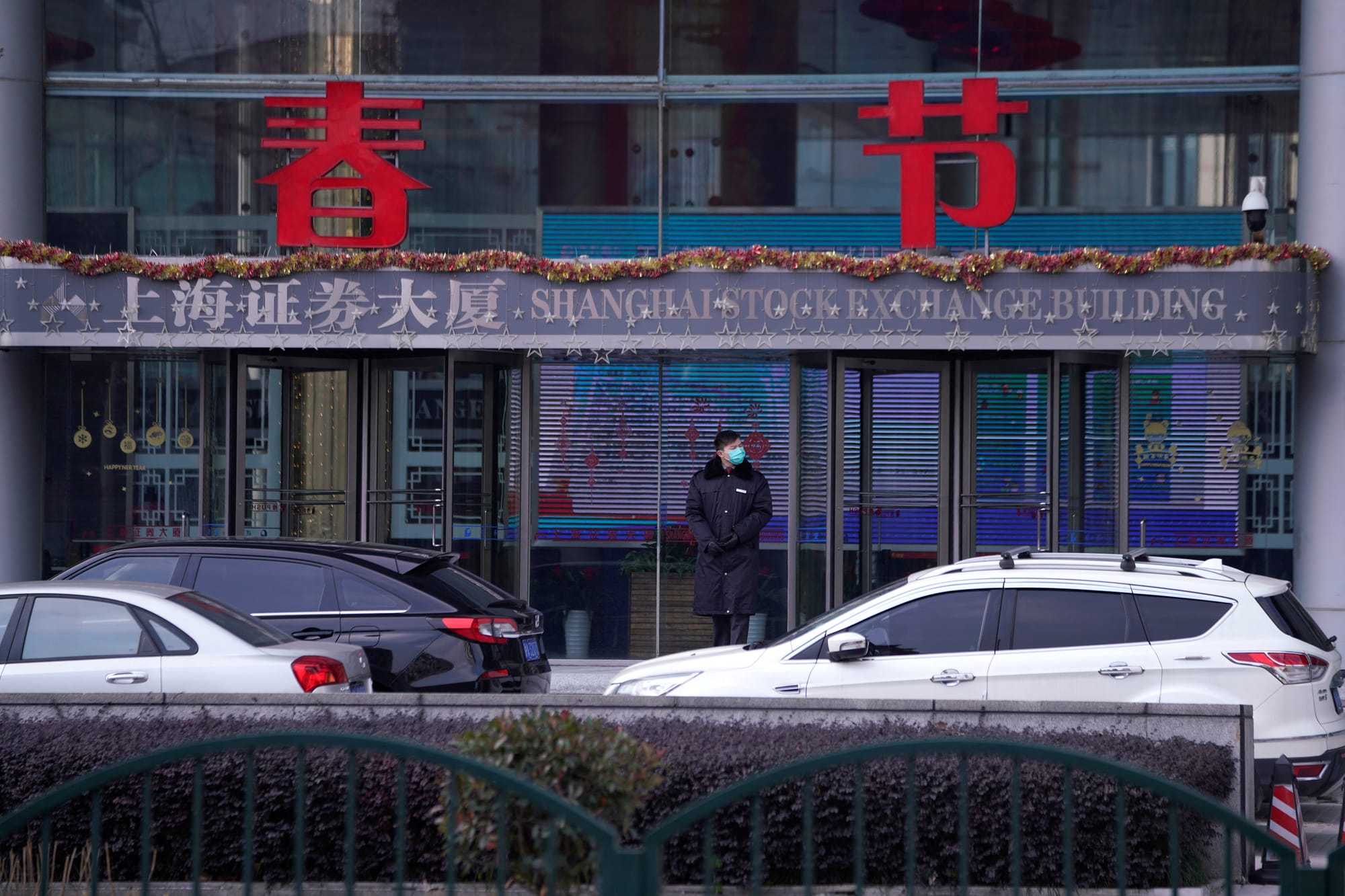
The backstory: Back in 2010, China introduced short selling to its stock market, allowing investors to make a profit when stock prices fall. Essentially, short selling is a strategy where investors bet on stocks they think will drop. They borrow shares and sell them, then wait for the prices to dip so they can buy them back cheaper and return them to the lender, pocketing the difference. It's a win if the stock falls, but they stand to lose money if the stock price actually goes up.
Over the past few years, Chinese and Hong Kong markets have seen a stock rout that’s wiped out over US$6 trillion since 2021. The main culprits? For one, China’s real estate sector has not been doing well. A perfect example is Evergrande's 2021 default, which ended up triggering a court-ordered liquidation earlier this week. And China’s economic recovery post-COVID has been slower than hoped. Geopolitical tensions between Beijing and Washington haven’t helped either. At the same time, high youth unemployment, declining exports and mounting local government debt have added to the signs of economic trouble.
The development: The China Securities Regulatory Commission (CSRC) has made a big move by suspending the lending of restricted shares on mainland stock exchanges. Restricted shares are often offered to company employees or investors with limits on their sale, but they can be lent to others for trading, like in short-selling. Click the link here for more.
The IMF boosts its outlook
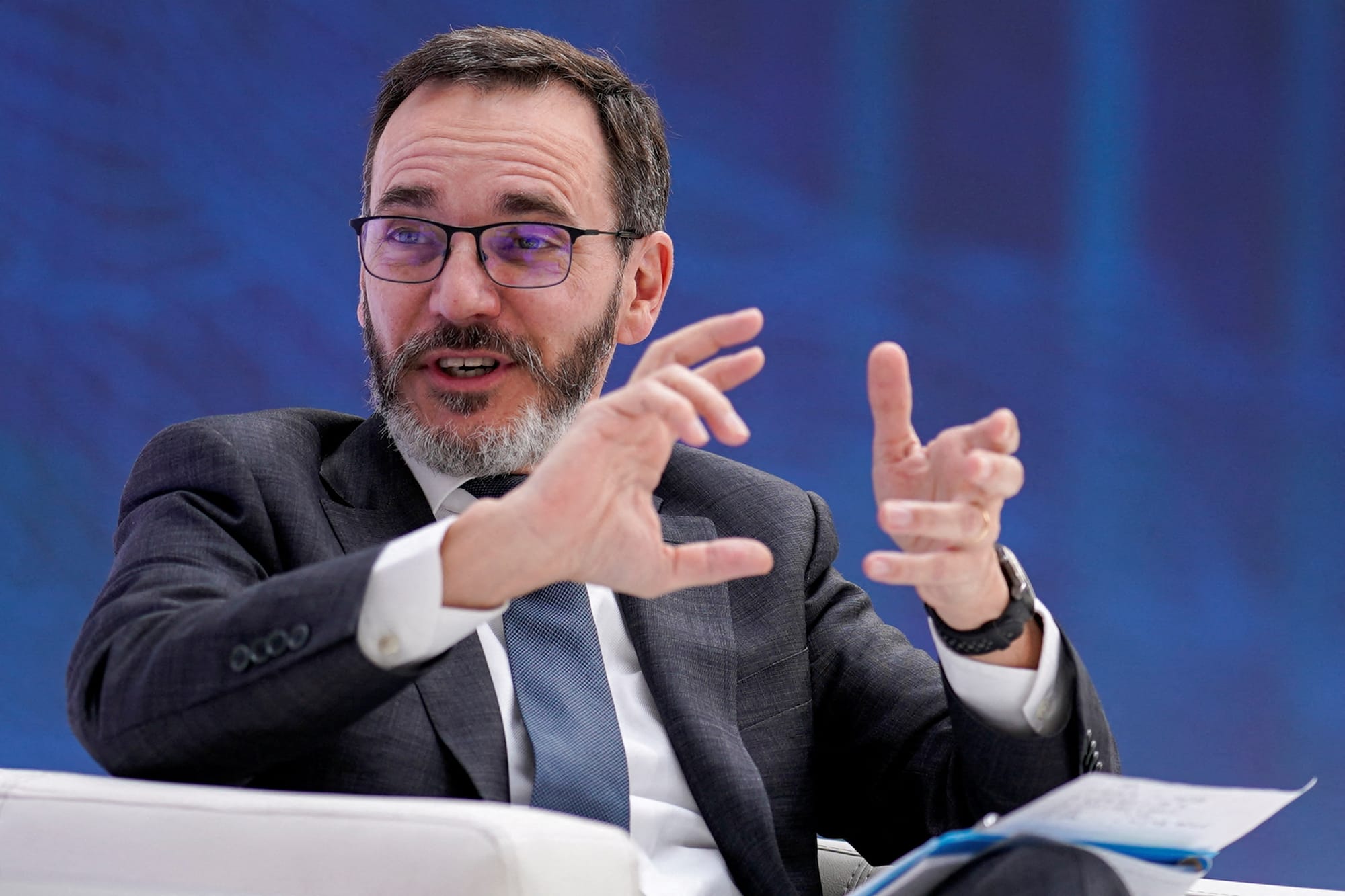
The backstory: The International Monetary Fund (IMF), founded in 1944, is an organization with 190 member countries that work together to “achieve sustainable growth and prosperity.” So essentially, the group aims to help stabilize the global economy. It does this by advising its members on how to improve their economies as well as lending money to member countries when they need financial help. It also does a lot of research to help countries develop their economic and trade policies. Based in Washington, the IMF publishes its World Economic Outlook every six months to forecast how the world’s economy is going to grow and change.
More recently: In October, the IMF published its last forecast, with the UK coming in with one of the worst economies of the year and China’s property market slump looming over potential growth in Asia. Overall, the forecast for global economic growth was below the historical average of 3.8%, with 2023’s growth expected to slow to 3% and 2024 to be at 2.9%. This was all off the back of countries hiking interest rates and tightening budgets to fight inflation.
The development: On Tuesday, the IMF changed some of its predictions from October, lifting its forecast for growth up to 3.1% for 2024. The IMF’s chief economist, Pierre-Olivier Gourinchas, explained that the world economy is resilient, and we seem to be heading toward a “soft landing” because inflation is declining steadily. Click the link here for more.
To end, we'll look into:
The truth about burnout

Feeling stressed and exhausted? Sometimes work can be never-ending, and in recent years, it has become a harder problem to tackle because we’re always connected now. It can be tough to switch off from work and keep a work/life balance when it’s so easy to check your emails or Slack messages, leading to our thoughts being centered around work a lot of the time.
In 2019, the World Health Organization (WHO) announced burn-out as “a syndrome conceptualized as resulting from chronic workplace stress,” with the following symptoms:
- Feelings of energy depletion or exhaustion
- Increased mental distance from one’s job or negative or cynical feelings toward it
- Reduced professional efficacy
Science writer David Robson from the BBC spoke with Anna Katharina Schaffner, a cultural historian and executive coach specializing in burnout, to find out more about what’s going on. Click the link here for more.
In other news ...
🔢Numbers:
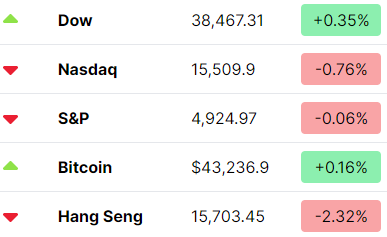
📉Market snapshot and key quotes:
- In the US: Wall Street had a nearly flat day on Tuesday as investors awaited the Fed's decision on interest rates.
- In Hong Kong: Hong Kong stocks took a hit on Tuesday as a court ordered the liquidation of Evergrande, once China’s largest property developer.
📊Top gainers/losers and company news:
- In the US: General Motors surged by 7.8% on better-than-expected earnings.
- JetBlue slipped by 5% after revealing a gloomy outlook on revenue and capacity for the first quarter.
- In Hong Kong: JD.com led a tech downturn, dropping over 4%, while Meituan and Tencent fell nearly 3%. Alibaba ended down 2%.
👀The numbers everyone is watching:
- In Hong Kong: Watch for China's factory activity figures and Hong Kong's Q4 GDP this week.
- In the US: Apple, Meta, Amazon, plus Dow players Boeing and Merck, are set to unveil quarterly updates.
📅To check out our economic calendar for this week, click here.
More headlines ...
📰Israel/Gaza update: On Tuesday, Israeli special forces disguised as doctors and women killed three Palestinian militants at a hospital in the occupied West Bank, who were allegedly part of a newly formed group called the Jenin Battalion, which has fought Israeli forces in the last two years. Israeli authorities said the three men had been part of a similar plan to attack Israel like the one by Hamas on October 7. Hamas claimed one of the men, and Palestinian Islamic Jihad claimed the other two.
The Palestine Red Crescent Society (PRCS) has said it lost contact with a rescue group that was on a mission to save a 6-year-old girl trapped in a car that had been fired on in Gaza. The group said the girl is in the car with six of her family members who had all been killed. The aid group isn’t sure if the team has successfully evacuated the girl or not.
After reported talks of a prisoner-for-hostage exchange over the weekend, Israel’s PM Benjamin Netanyahu has rejected the idea of freeing thousands of prisoners and pulling troops out of Gaza. He restated his point that Israel won’t stop its war against Hamas until it has ensured they’ll not be a threat to Israel.
Former UK PM David Cameron, now foreign secretary, has said that the UK is reconsidering a Palestinian state and will be bringing this forward to other allies like the UN. Cameron said he hopes this would give Palestinians “a political horizon so that they can see that there is going to be irreversible progress to a two-state solution.”
🗞️Ukraine shows support for China: Ukrainian ambassador Pavlo Riabikin expressed in a meeting with the Chinese foreign vice-minister, Sun Weidong, in Beijing on Monday that Ukraine supports the one-China principle and that they are willing to strengthen ties with China. Sun agreed and said they would respect one another, consider a long-term view and “promote stable and far-reaching bilateral relations.” The meeting was on the same day China and Russia talked for the first time this year in Moscow.
💣North Korea fires another missile: Over the last few months and more so in the last week, North Korea has been testing missiles, with the most recent on Tuesday morning. It fired several cruise missiles toward waters off the west coast, according to South Korea’s military. State media and the Korean Central News Agency said that over the weekend, Kim Jong Un also oversaw the test of cruise missiles designed for submarines that would help it deliver an atomic attack.
🧑⚖️Pakistan’s former PM sentenced: A week before a national election, Pakistan’s former prime minister and international cricketer, Imran Khan, and former foreign minister and vice-chairman of Khan’s party, Shah Mahmood Qureshi, have been sentenced to 10 years in jail for leaking state secrets to the public. Khan’s party has said it will challenge the decision and is calling it a “sham case.” Khan is already in jail serving another sentence for corruption, and he’s called the charges “politically motivated.”
✂️PayPal job cuts: Shares of payment giant PayPal have been on the rocks lately, plunging more than 20% over the past year. On Tuesday, the company’s CEO, Alex Chriss, sent a letter to staff (seen by Bloomberg) that the company would be cutting about 9% of its workforce, which would affect about 2,500 jobs.
🤑India’s AI unicorn: Krutrim is an Indian artificial intelligence (AI) startup founded by serial entrepreneur Bhavish Aggarwal, and the firm just rolled out a large language model (LLM) around a month ago. Now, the startup has officially become a unicorn after getting US$50 million in funding. It’s now the first Indian AI startup to make it to the billion-dollar valuation club. The firm is working on data centers and wants to create servers and supercomputers for the AI industry.
💰Elon’s payday troubles: A little over five years ago, Tesla CEO Elon Musk got the largest executive pay package in US history – worth US$55 billion. But on Tuesday, a US judge struck the package down after a shareholder challenged it, saying it was too excessive. This could put a dent in Musk’s piggy bank, even potentially threatening his status as the richest man in the world.
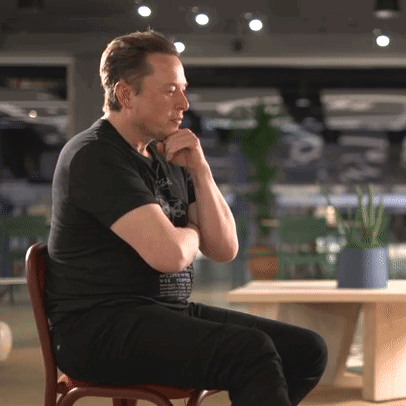
🦈Shark attack: In the first attack in Sydney Harbour in 15 years, a shark mauled a woman swimming in the waters, officials said on Tuesday, and she had to go to hospital with a “serious” leg injury. The hospital said she was in stable condition in the ICU and would have surgery during the day.
🧑✈️Cathay offers pilots bonuses: Hong Kong’s largest air carrier, Cathay Pacific, has recently had to cancel flights due to a shortage of flight crew. It’s now offering bonuses to pilots who operate flights over the Lunar New Year to avoid more cancellations over the busy holiday period, according to people speaking to Bloomberg.

🥶Temperature drops in Hong Kong: Bundle up, Hong Kongers! The temperature is expected to drop as low as 14 C ahead of the Lunar New Year, according to Hong Kong’s weather forecaster, with possible rainy weather early next week, too. But the next few days are expected to be a little humid and warm.

Quiz Time!

What company just announced it had put a brain implant into a human for the first time?
- Pixium Vision
- Synchron
- Microsoft
- Neuralink
Enjoying our TMS Headlines?
Forward it to a friend! After all, sharing is caring.
Anything else? Hit reply to send us feedback or say hello. We don't bite!
Written and put together by Joey Fung, Alisha Khan and Christine Dulion
**The answer to the quiz is [4]



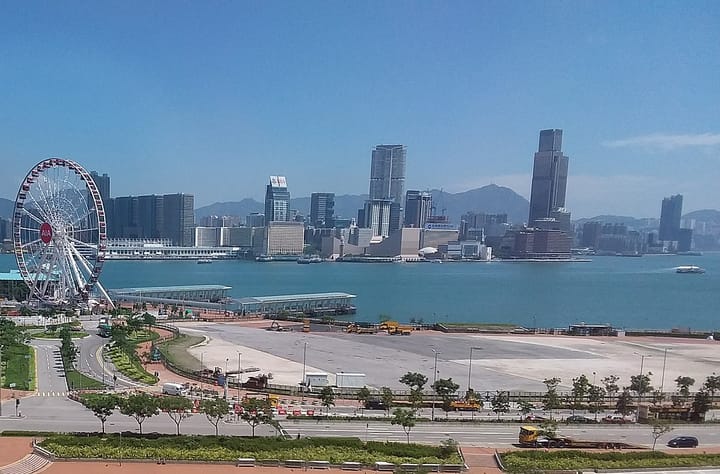
Comments ()